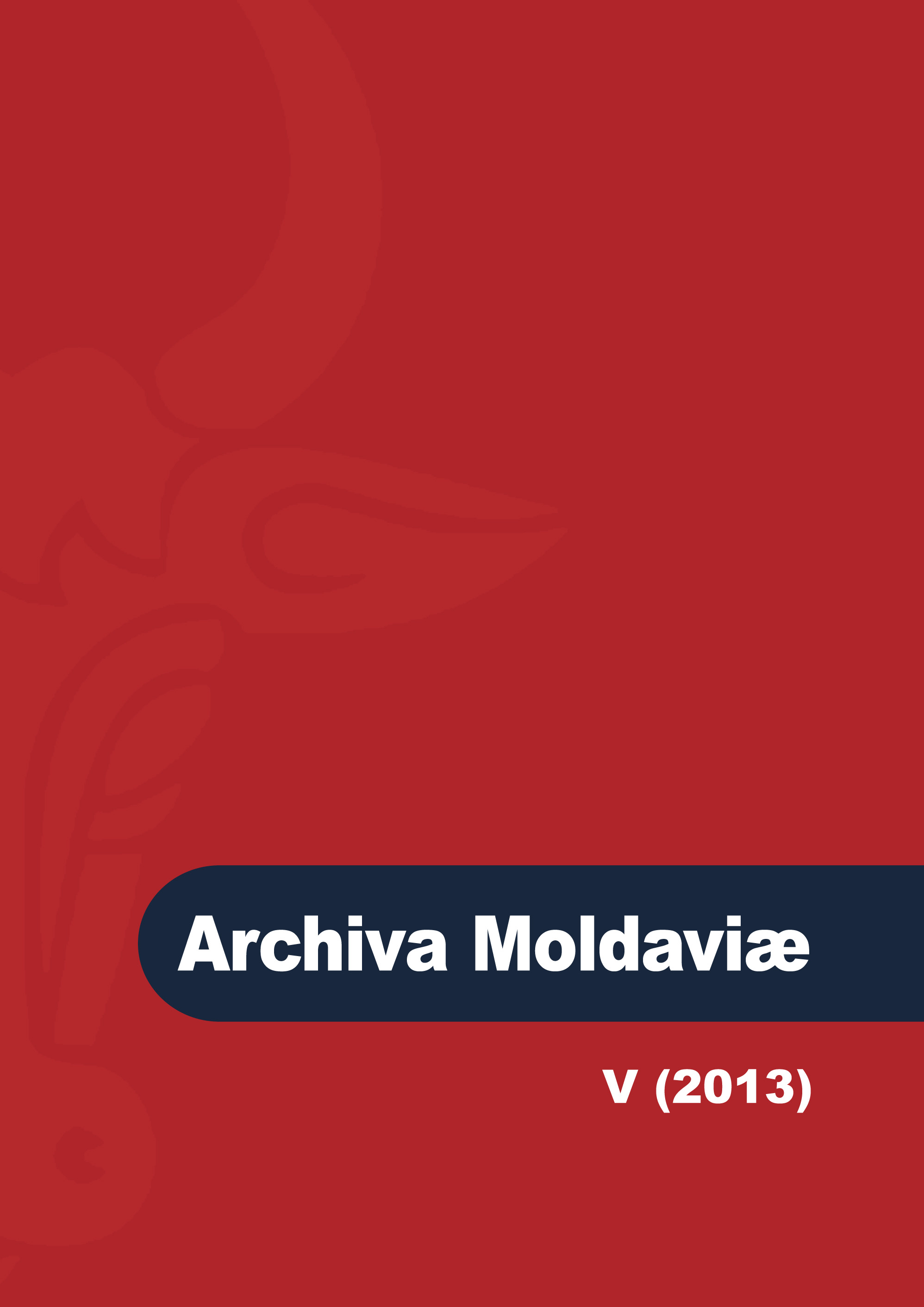Romanian Boyar Opposition to the Organic Statutes: Reasons, Manifestations, Outcomes1
Romanian Boyar Opposition to the Organic Statutes: Reasons, Manifestations, Outcomes
Author(s): Victor TakiSubject(s): Political history, 19th Century
Published by: Societatea de Studii Istorice din România
Keywords: Romanian boyars; Russian Empire; Organic Statutes; petitions; political rights; social privilege; elites.
Summary/Abstract: This article examines the attitudes of the Romanian boyars towards the Organic Statutes of Moldavia and Wallachia that were elaborated and introduced during the Russian occupation of the principalities in 1828-1834. These attitudes reflected the tensions within the boyar class that erupted in the wake of the Greek Etaireia uprising of 1821 and the collapse of the century-old Phanariote regime in Moldavia and Wallachia. The temporary emigration of great boyars, who had compromised themselves in the eyes of the Ottoman government by their real or alleged association with the Greek conspiracy, gave the boyars of the second and third rank an opportunity to redistribute the social privileges and redefine the political system of the principalities in their favor. In the years that followed the suppression of the Etaireia uprising, the lesser Wallachian, and especially, Moldavian boyars cooperated and with the Ottoman authorities and the first autochthonous hospodars. For their part, the greater boyars sought the support of Russia, the traditional protector of Moldavia and Wallachia, which pursued a legitimist foreign policy at this time and insisted on the restoration of the status quo ante 1821 in the principalities. Although the lesser Moldavian boyars had few contacts with the Russian authorities prior to the Russian-Ottoman war of 1828-1829 and the Russian occupation of the principalities, they were not uniformly inimical to the tsarist empire. In particular, they were attracted by the special form of government that the Russians established in Bessarabia, the eastern part of the principality of Moldavia that they annexed in 1812. The Bessarabian Statute of 1818 presupposed a wide involvement of the local nobility in provincial administration. The Russian definition of the nobility was at least notionally “egalitarian” and thus placed those Moldavian boyars of the second and third rank who had chosen to stay in Bessarabia on par with their great boyar counterparts. The petitions that the lesser Moldavian boyars submitted to the Russian authorities in 1830 thus did not fail to mention the Bessarabian example alongside a plethora of historical, legal and philosophical arguments intended to show that the drafting of the Organic Statutes by the narrow great boyar committees violated the political customs and traditions of the principality. The article argues that the position of the Russian occupation authorities on the question of intra-elite conflict reflected both the long-term institutional evolution of the Russian Empire and the specific political conjuncture of the late 1820s and the early 1830s. Russian political system of the second half of the 18th century proved to be rather accommodative of the interests of both the Great Russian nobility and of the elites of the borderlands. However, in early nineteenth century, this “empire of nobles” was gradually giving way to a militarized bureaucratic absolutism of the later Romanovs. This process involved the reduction of the role of noble self-government both in the center and at the peripheries of the empire, as illustrated by the curtailment of the Bessarabian autonomy in 1828. The demands of the lesser Moldavian boyars for a greater role in the process of elaboration of the Organic Statutes were thus at odds with the general approach of the Russian policy-makers towards government. The coincidence of the petitionary activities of the lesser Moldavian boyars with a new revolutionary wave in Europe made the Russian authorities even more hostile to the idea of broad political participation. Following the outbreak of a major uprising in the Kingdom of Poland in November 1830, the small boyar criticism of the drafts of the Organic Statute was interpreted as political subversion. These factors explain the failure of the lesser boyars to influence the distribution of political prerogatives and social privilege at the moment of elaborations and adoption of the Organic Statutes. Skewed in favor of the great boyars, the provisions of the Organic Statutes alienated too many segments of the Romanian society, which deprived the Russian hegemony in the principalities of a solid foundation.
Journal: Archiva Moldaviae
- Issue Year: V/2013
- Issue No: 5
- Page Range: 199-232
- Page Count: 34
- Language: English

